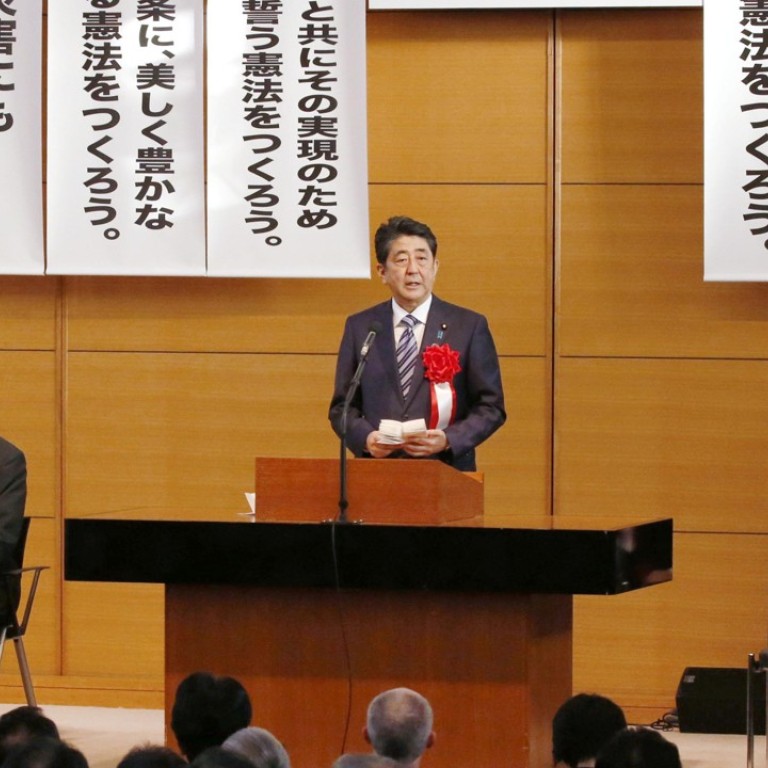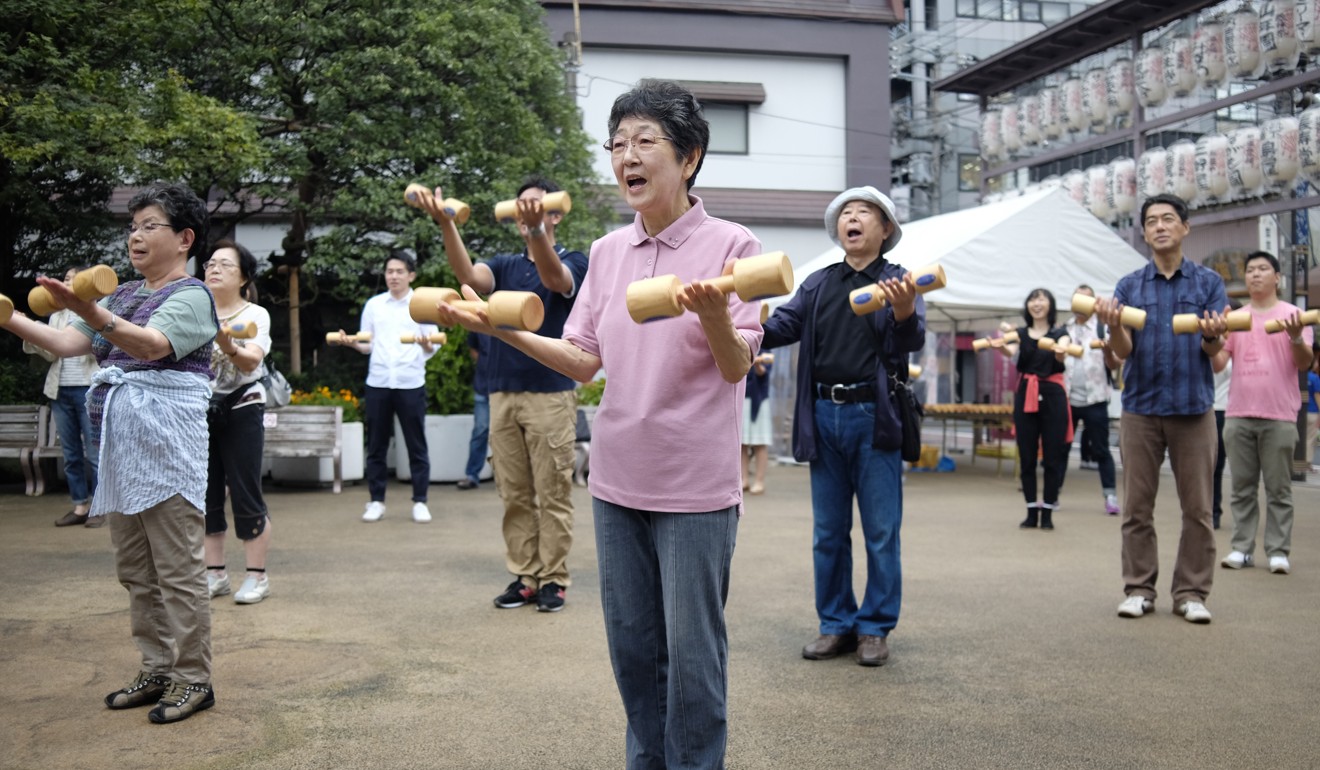
Shinzo Abe’s 2020 vision for a ‘new Japan’ should worry Japanese, and the whole region
Kevin Rafferty says the prime minister’s dogged pursuit of a revision of Japan’s pacifist constitution by 2020 is risky when the greying economy needs new options to thrive in a changing world
Supporters say he wants to claim “his place in history”, which is why he set so much store by winning the Olympics for Tokyo in 2020, and is getting his Liberal Democratic Party (LDP) to change its rules so that he can still be prime minister when Japan hosts the world.
Rule change could make Shinzo Abe the longest-serving leader in Japan
Abe claims 2020 will see the birth of a “new Japan” following revisions to the constitution. He should beware: Japan is a complex country carrying the heavy burden of history. The real problem is that Japan needs new thinking, and needs to be aware of its place in the modern world and of what the world thinks of Japan.
The analogy of the frog luxuriating in warm water not realising it is on the way to boiling, rings true for Japan
Part of Japan’s tragedy is that there are few alternative voices questioning policies and exploring new options. Japan’s establishment is rooted in the stodgy past, determined to preserve old privileges. The analogy of the frog luxuriating in warm water, not realising it is on the way to boiling, rings true for Japan. Years of quantitative easing have sent its stock market to a high 21st-century plateau; it has helped to keep the yen soft and boosted export growth as the leading factor keeping growth positive.
Abe has relied on the Bank of Japan to do the job with monetary policy, but put aside the fiscal arrow in postponing a consumption tax hike. Economists say the 8 per cent tax will have to go to 20 per cent or higher for Japan to wrestle its budget back into balance. Also, he tried to sharpen the third arrow of structural reform but has failed to release it. Reforms in corporate law, agriculture and deregulation don’t go far enough to upgrade the economy to face a 21st-century global marketplace.

Ageing Japan [will ] slide down global tables in economic muscle and prosperity
Inexorable demographic facts of life and death will see ageing Japan slide down global tables in economic muscle and prosperity. That’s not so bad if Japan accepts middling-power status, although it still has to cope with government debt and continuing deficits. To raise the consumption tax now to 15-20 per cent would cause the economy to stall, but to wait to 2020 or beyond means Japan will not be able to afford health and social care for all.
Why is Abe talking of a shining new Japan from 2020 with a new constitution boasting a defence ministry and proper armed forces?
Shinzo Abe reveals 2020 plan to include existence of military in first-ever change to Japan’s pacifist constitution
It is still unclear whether he wants to rip up the constitution or just neuter the key pacifist Article 9. Japan already has a powerful military, so why does Abe want to tear the country apart by adding a sentence or clause admitting to armed forces? That means he has to define what they can and cannot do, a dangerous exercise in dancing with contradictions concerning a peaceful military.
Would ordinary Japanese prefer a new military name for the Self-Defence Forces, or a peaceful and prosperous life in a peaceful and prosperous Asia?
Leo Lewis in the Financial Times claimed, “The psychological impact on Japan and its sense of nationhood (of granting constitutionality to the Japanese military) will be immense.” It might be immensely psychologically important for Abe to report to the spirit of his grandfather, ex-prime minister Nobusuke Kishi, that he has undermined a key clause in the US-imposed 1947 constitution; but would ordinary Japanese prefer a new military name for the Self-Defence Forces, or a peaceful and prosperous life in a peaceful and prosperous Asia?
What about the psychological impact of constitutional change on Japan’s neighbours, an instant red rag to China, propaganda for North Korea, concern for South Korea? Who will pay if an arms race is triggered?
Discussions of an amended constitution are largely going on within the confines of the nationalist parliamentary league of Nippon Kaigi – “for revising the constitution and the glory of the nation” – and Abe’s LDP allies.
Japan and the Japanese need to consider the costs and benefits – psychological, political, diplomatic and financial – of a totally rewritten or tinkered constitution, or simply keeping the existing document while trying to address the real problems of a changing Japan in a changing world. Time is running out for the Japanese frog in hot water.
Kevin Rafferty was a professor in the Institute for Academic Initiatives at Osaka University

